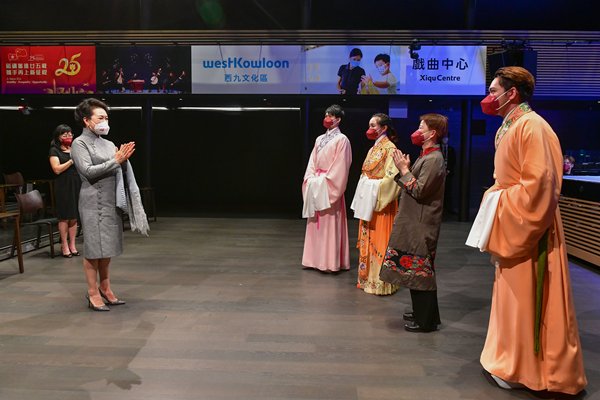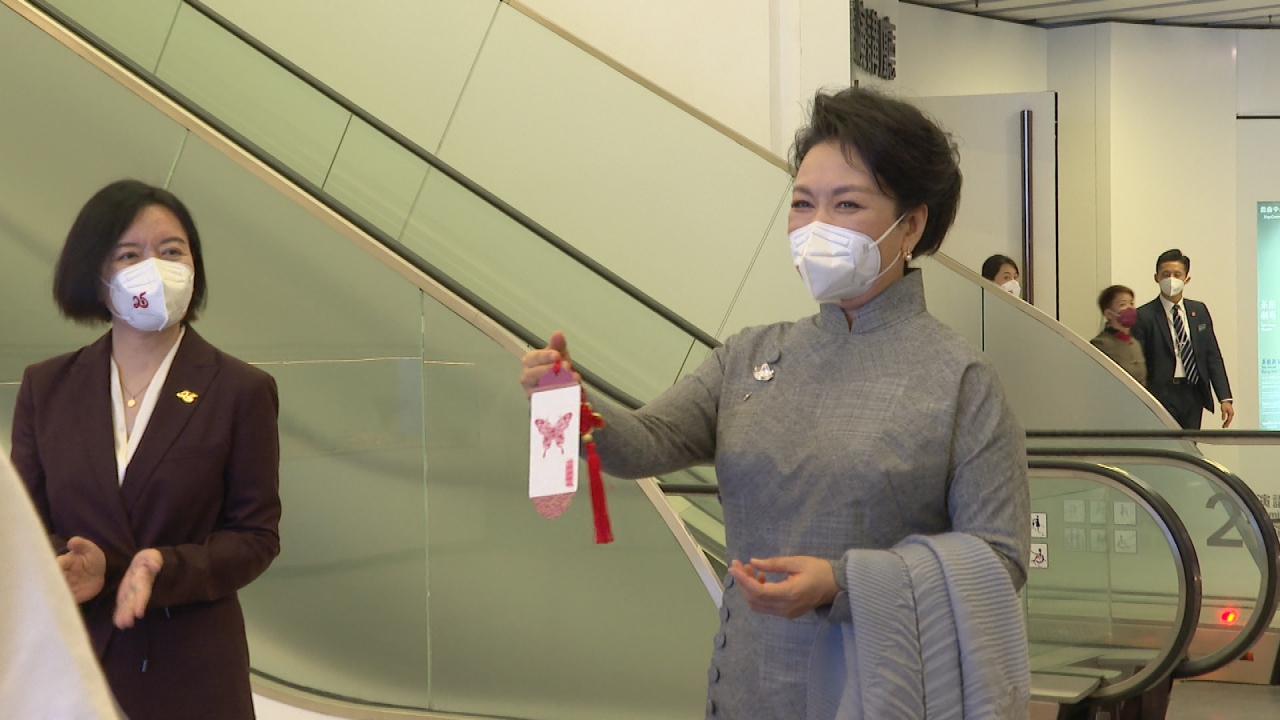President's wife tours Xiqu Centre
President Xi Jinping's wife Peng Liyuan today visited the Xiqu Centre of the West Kowloon Cultural District, where she chatted to young actors, members of a performance troupe and volunteers.
Accompanied by Liaison Office of the Central People's Government in the Hong Kong Special Administrative Region Deputy Director Lu Xinning, the President's wife was briefed on the cultural district's planning and latest developments as well as the centre's work in preserving and promoting Cantonese opera and traditional Chinese theatre.
With the central government's support, Cantonese opera was successfully inscribed onto the United Nations Educational, Scientific & Cultural Organization's Representative List of the Intangible Cultural Heritage of Humanity in 2009 as a world intangible cultural heritage (ICH) item.
The Hong Kong SAR Government has been in collaboration with the community in the protection, transmission and promotion of Cantonese opera and other ICH items.
The President's wife then watched a rehearsal of Cantonese opera excerpts by the Tea House Rising Stars Troupe at the centre's Tea House and another rehearsal of the Hong Kong Gaudeamus Dunhuang Ensemble at the studio. She also spoke to the actors and performance troupe members.
She then toured the "A Thousand Faces: Cantonese Opera Legend Yau Sing-po" exhibition and met four young volunteers who were assigned to intern at the Palace Museum under the Hong Kong SAR Government's Thematic Youth Internship Programmes to the Mainland. The volunteers shared with her their valuable internship experiences in the Mainland.
Before concluding the visit, the President's wife presented a collection of traditional Chinese theatre libretti as a gift for the centre.
The compilation of the collection was initiated by the late well-known literary historian Zheng Zhenduo and took several decades to complete. It has important historical and artistic value and represents a major achievement in safeguarding the national cultural heritage of traditional Chinese theatre.

